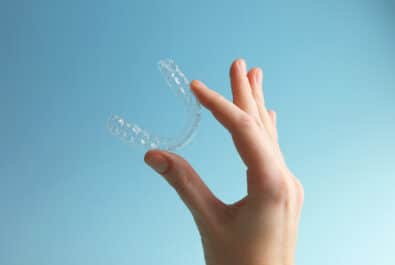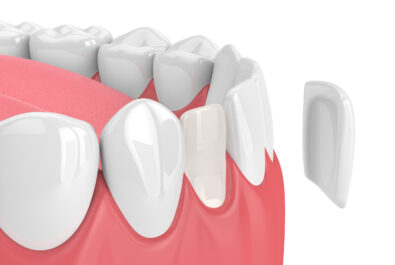Your jaw bone is responsible for supporting the teeth, aiding in chewing and speaking, and filling out the normal proportions of your face. If the jaw loses mass or density to resorption (a phenomenon where bone cells break down and are absorbed into the body via the blood) or as the result of a traumatic… Read more »
Month: February 2014
Bad Teeth, Lost Teeth, New Teeth, False Teeth: A Look at Dental Implant Restorations
As we’ve learned in our in-depth examination of missing teeth, a number of risk factors – both within and outside of your control – can make you more susceptible to the primary causes of tooth loss. So, if gum disease, decay, or an accident claim one or more of your permanent teeth, what’s your next… Read more »
Are You Unknowingly on the Tooth Loss Fast Track?
In our ongoing exploration of the causes and consequences of tooth loss, we’ve looked at the detrimental effect missing teeth can have on your oral and overall health. We’ve also discussed risk factors for adult tooth loss that you can control through at-home hygiene and lifestyle modification. Today, we’re delving into risk factors for tooth… Read more »
Can You Keep Your Teeth for Life?
In our last post, we discussed the three leading causes of adult tooth loss in America and provided a few measures you can take to prevent losing a tooth to gum disease, tooth decay, or accidental injury. Dental experts have identified several factors that can increase your risk of tooth loss and, in some cases,… Read more »
Top Three Causes of Missing Teeth (and How You Can Fight Back)
True, missing teeth look bad and can make others perceive you as older or less attractive. Don’t forget, however, that missing permanent teeth also spell disaster for your remaining teeth. Ongoing or severe oral health issues like gum disease and tooth decay and accidental trauma are the leading causes of tooth loss in the United… Read more »
How Serious is Losing a Permanent Tooth?
When you lose a permanent tooth, the seriousness you attribute to the situation is probably directly related to where that new gap lay. A missing molar won’t show too prominently, so the need to replace that tooth doesn’t seem as important. A tooth lost from the front of the mouth will show every time we… Read more »
Follow These Three Steps in a Dental Emergency
Think about the last time the lights went out in your house. You may have had candles and matches at the ready, flashlights with fresh batteries in easy-to-access locations, and plenty of bottled water on hand, but the sudden darkness still takes you by surprise. In a similar manner, no matter how well you’re prepared… Read more »
What Can You Expect from IV Sedation?
Dentists usually recommend IV sedation – anti-anxiety medication delivered intravenously via a small needle – for patients undergoing dental implant placement, wisdom tooth removal, or other oral surgery procedures. However, IV sedation also helps patients with profound dental fear and anxiety, a very sensitive gag reflex, or physical/neurological impairment relax during all types of dental… Read more »
A Brief History of Nitrous Oxide
Those few moments just before a dental procedure can be a little tense, even for people who normally wouldn’t identify themselves as “afraid of the dentist.” Your dentist can take the edge off of that anxiety with nitrous oxide, a safe, reliable method that’s helped dental patients relax since the 19th century. Today, we’re taking… Read more »
Does Sedation Dentistry Put You to Sleep?
Toward the end of the 20th century, the trend in dentistry shifted toward a more patient-focused approach to treatment. As a result, dentists refined their chairside manner, dental offices began boasting ergonomic exam chairs and gourmet coffee, and more practices began offering a variety of dental sedation options. Sedation dentistry reaches out to people who… Read more »













